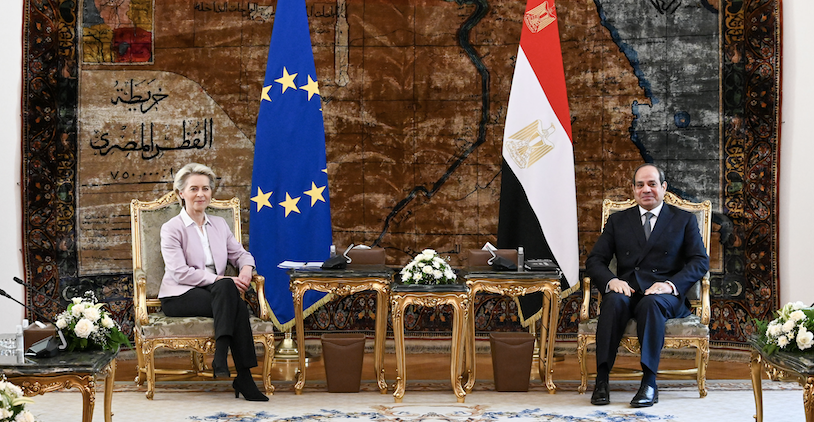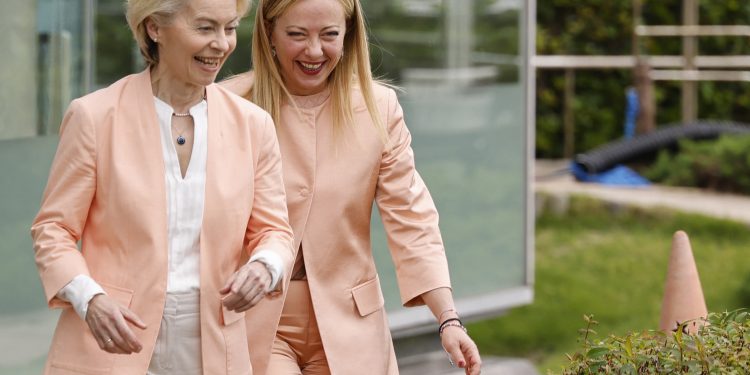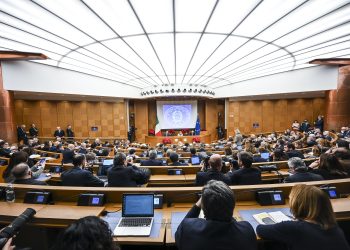Brussels – Ursula von der Leyen and Giorgia Meloni will fly to Cairo together on Sunday, March 17, to advance negotiations with Abdel Fattah al-Sisi on signing an EU-Egypt Strategic Partnership. Details had already been discussed in Brussels in January, at the tenth Association Council between the two partners, when EU Commissioner for Enlargement, Oliver Várhelyi, predicted the agreement would be closed by the end of February.
The time is ripe. The prime ministers of Belgium and Greece, Alexander De Croo and Kyriakos Mītsotakīs, will be with the president of the European Commission and the Italian premier. Replicating the Team Europe approach that last summer – then, Dutch Prime Minister Mark Rutte was with von der Leyen and Meloni – convinced Tunisian President Kais Saied to sign the EU-Tunisia Memorandum of Understanding. Today (March 8), European Commission spokeswoman Veerle Nuyts did not go out on a limb, merely confirming that the EU delegation will be in Cairo “as part of the discussions on strengthening the EU-Egypt partnership.”

The EU-Egypt partnership will be based on six pillars of “mutual interest,” Várhelyi and Egypt’s foreign minister, Sameh Shoukry, said back on Jan. 23. Political relations, economic stability, investment and trade, migration and mobility, security and demography, and, most importantly, energy cooperation. While the Memorandum with Tunisia revolves around border management and cooperation on migration, for Egypt – a country that already hosts over 9 million migrants on its territory – the challenges and opportunities are different. “Egypt’s potential in terms of green electricity is hard to match,” the EU commissioner had admitted. Brussels is particularly interested in the enormous energy resources of the North African country: not just gas but also renewable energy.
The EU is already working on implementing the Economic and Investment Plan for Egypt, which includes mobilizing 9 billion euros in food, water, and energy investments over 2021-2027, for which 5.8 billion euros have already been mobilized. From the Egyptian perspective, there is nothing more normal than strengthening the partnership with Brussels as the EU is already Cairo’s leading trading partner: the 27 in the EU bloc cover more than a quarter of all Egypt’s trade.
English version by the Translation Service of Withub







